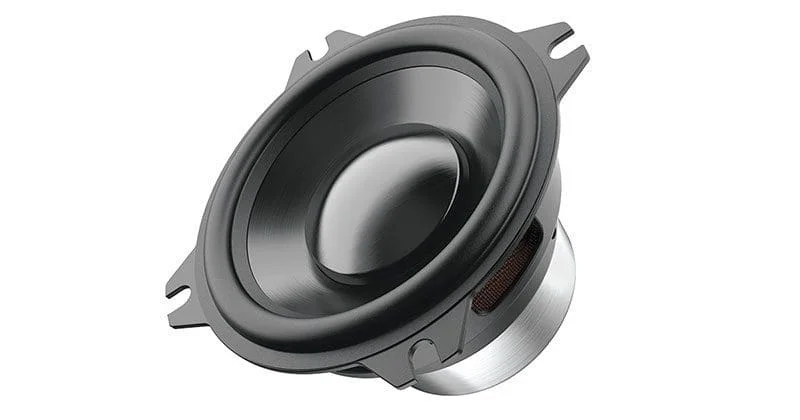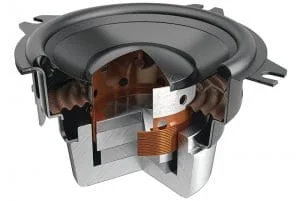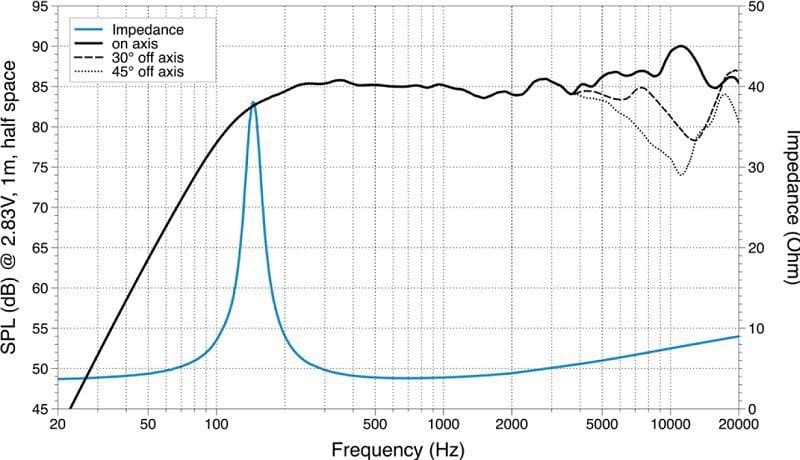 If you have a Ford, Toyota or General Motors vehicle with a midrange speaker location in the outer corners of the dash, you may want to consider the Audison AP2 Wide-Range Component speakers for your sound system upgrade. These Prima-Series 2-inch transducers were designed to cover the midrange and high-frequency audio spectrum without the need for a tweeter. Let’s look at the features of these compact speakers and why they are a great option for your car or truck.
If you have a Ford, Toyota or General Motors vehicle with a midrange speaker location in the outer corners of the dash, you may want to consider the Audison AP2 Wide-Range Component speakers for your sound system upgrade. These Prima-Series 2-inch transducers were designed to cover the midrange and high-frequency audio spectrum without the need for a tweeter. Let’s look at the features of these compact speakers and why they are a great option for your car or truck.
Design Features of the Audison AP2 Wide-Range Speaker
Each AP2 is built around a stamped steel frame with large vents in the sides and four mounting tabs in the corners. At the base of the cone is a custom aluminum T-yoke that supports a pair of neodymium magnet slugs that are separated by a spacer. The top magnet features a thin copper shorting ring to help control stray magnetic fields and reduce inductance. This ring helps extend high-frequency response to 20 kHz and reduce distortion and higher excursion levels.
 The driver uses an aluminum cone and dust cap attached to the frame with a rubber surround. A flat, linear spider is attached to the voice coil former to keep everything centered in the magnetic gap. The voice coil winding has a diameter of 1 inch and features a dual-layer CCAW winding with a nominal impedance of 4 ohms.
The driver uses an aluminum cone and dust cap attached to the frame with a rubber surround. A flat, linear spider is attached to the voice coil former to keep everything centered in the magnetic gap. The voice coil winding has a diameter of 1 inch and features a dual-layer CCAW winding with a nominal impedance of 4 ohms.
The former is made of Kapton and features a series of cooling and pressure relief vents that contribute to the speaker’s ability to handle 25-watt continuous, 50-watt peak power levels. While these numbers may seem low, they are real specifications and represent actual power measurements rather than specifications created using pink noise. Comparable pink-noise ratings would be north of 75 watts.
In terms of dimensions, the AP2 has a mounting depth of 1.46 inches, and it requires a 2.01-inch mounting cut-out. The outer diameter of the mounting tabs is 2.74 inches.
Specifications and Applications
The Audison AP2 has a resonant frequency of 145 Hz, which is nice and low for a driver of this small size. The Vas equivalent air volume specification is 0.36 liter, and the total Q (Qts) is 0.64. Computer simulations show that this driver will work in extremely small enclosures (0.02 cubic foot), making it ideal for A-pillar pod applications. Excursion-based power handling reaches the 2.5 mm (0.098-inch) Xmax value at 175 Hz, so a steep high-pass filter crossover at this frequency (or perhaps 200 Hz) will ensure that the driver sounds excellent at higher volume levels.
There is a lot of misunderstanding in the mobile electronics industry around how wide-range or wideband drivers work at higher frequencies. The output of any speaker (of any size or shape) becomes increasingly directional at higher frequencies. As you can see from the graph below, the output of the AP2 drops by about 10 decibels around 12-14 kHz as the listener movies off-axis to the cone. Called directivity, this phenomenon is based on the diameter of the cone. As such, installations of the AP2 where it’s used without a tweeter should place the speaker directly on-axis with the listener or in the corners of a dash where the high-frequency information can reflect off the nearby windshield and be dispersed into the listening environment. If your installer wants to add a tweeter like the Audison AP1, this driver would be exceptional in a door location, as is found in many BMW vehicles.

Experience the AP2 at Your Local Authorized Audison Dealer
If you’re planning to upgrade the audio system in your car or truck and are looking for a high-quality midrange or wide-range speaker to cover the upper octaves, check out the Audison AP2 speakers. Their modern design and compact size make them a great solution. For more information, visit the Audison website, and be sure to follow Audison on Facebook, on Twitter, on Instagram and YouTube.



